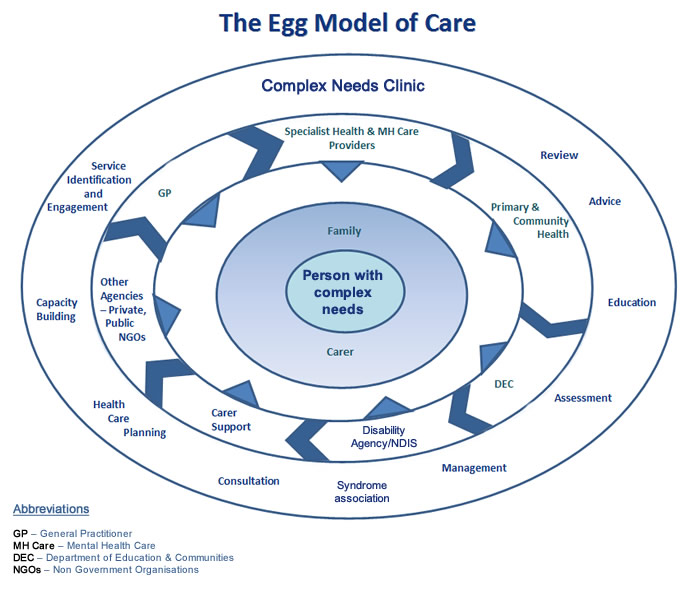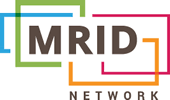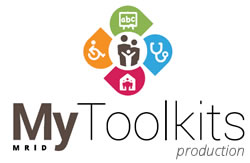Co-design is about clinicians, health service providers and consumers working together in an open and proactive way to find the best strategies for creating health care systems that meet the consumers’ needs.
Co-design places the individual with complex needs, such as a child with intellectual disability and their family, at the centre of the process. All decisions revolve around them: their priorities, their resources, their abilities, their motivations, their aspirations and their needs.
The best way of conceptualising this is the Egg Model. This model of care shows the people and agencies potentially involved in caring for an individual with intellectual disability. It also shows the multiple aspects of a person’s life that need to be considered and taken into account at every stage.

- Australian Commission on Safety and Quality in Health Care (2011). Patient-centred care: Improving quality and safety through partnerships with patients and consumers. ACSQHC, Sydney.
- Ham C, Walsh N (2013). Making integrated care happen at scale and pace. Read more at The King’s Fund website.
- The Kings’s Fund advocates patient and family-centred care (PFCC) as a method of improving health care quality by changing the perspective of staff delivering care, and helping them to reconnect with their values and motivation for working in health care. Read more about PFCC and its value to health services at the King’s Fund website.




